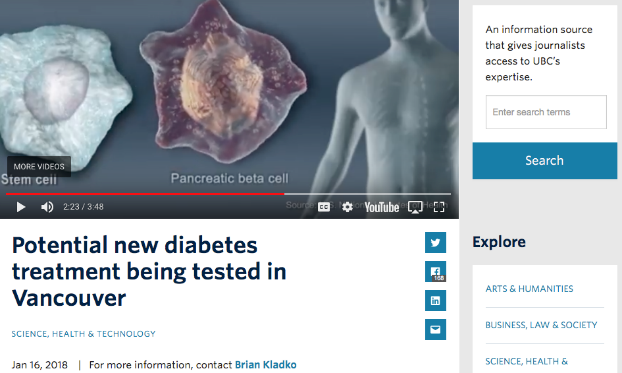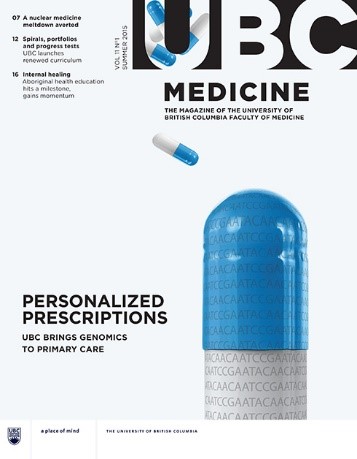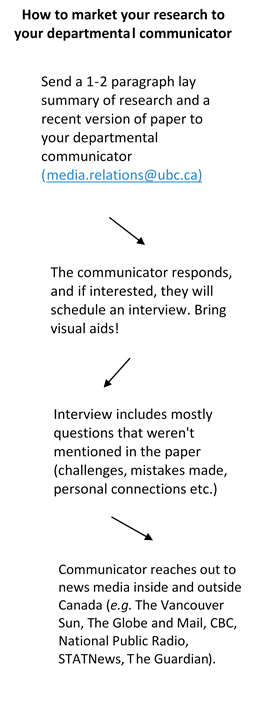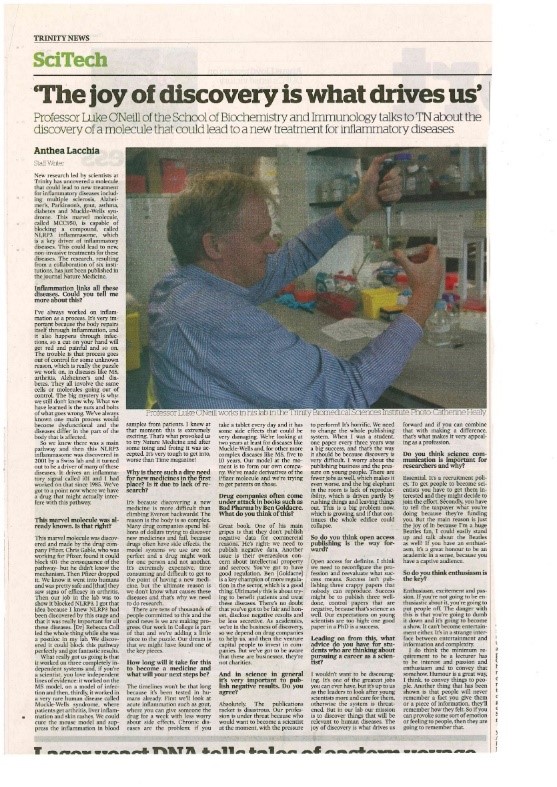 By Fennie Easton van der Graaf, Undergraduate Student, Jefferies Lab
By Fennie Easton van der Graaf, Undergraduate Student, Jefferies Lab
Finally conquered that PhD? Your paper just got accepted? Is your manuscript weeks away from being published? Now what? Postdoctoral researcher and free lance science writer Dr. Anthea Lacchia, who previously worked in the Nature Press Office, and former UBC Medicine Communications Officer Brian Kladko have an array of tips on how to market your publication to its fullest potential.
Anthea and Brian stress the importance of marketing research because it is our scientific duty to ensure that our findings are made accessible for a general audience, such that we can advance modern healthcare for the better. They also explain how the researcher will benefit:
“Scientists do not operate in a vacuum…a lot of research is funded by taxpayers’ money, so the general public ought to, at the very least, be able access the findings of that research, and I would argue, also have a say about what research is needed. Marketing your research will also make you a better scientist, because it will force you to communicate your ideas in new ways, to pitch them at different levels and to look at your research from fresh perspectives.” —Anthea
“First off, your funders might require it; CIHR grants come with a knowledge translation component. Secondly, exposure in the media enhances both your reputation and the reputation of your institution. And most important of all, that exposure could benefit patients – just because you’ve done work that you think will benefit patients, doesn’t mean it will unless the right people find out about it. Publications in journals are not enough.” —Brian

With the help of your departmental communicator, your study could be turned into a video or press release on the UBC News and beyond
While landing your research on the CBC may be the ultimate publicity, there are other ways to get your research noticed. The first hurdle is often convincing your unit’s communications office that your accomplishment is groundbreaking, and doing so a few weeks ahead of the publication date. Even before contacting them, it is a good idea to try explaining your findings to members of the non-scientific community. Brian looks for concrete reasons for your research to engage wider audiences; he pays special interest to clinical trials and results that diverge from the original hypothesis, and appreciates visual aids that complement your explanation. Brian also values when the researcher brings a sense of humour and candidness to the interview, although nothing personal will pass through his writing without your permission.
Anthea comments that if you feel you can’t reach wider audiences, your project may be better suited to science specific outlets such as Chemistry World, Physics World, etc. Anthea and Brian both advocate for the use of Twitter to promote your findings, but be cautious if your work poses controversial or ethical concerns.
“One word of advice: do check your e-mails in the weeks leading to publication, as media deadlines are very tight. Other options to promote your research in general include writing a blog post for a lay audience about your findings, recording a podcast about your work, or organizing a public engagement event around your research, such as a school visit or workshop at a festival.” —Anthea
Anthea also reminds us that “If your paper is in press, some journals ask that you respect an embargo until it is published. This means that there is a date before which your research cannot be published in the media (usually the publication date). Just be aware of this in case you get requests for interviews before your research is published.”
Overall there have been several success stories from UBC researchers who have marketed their findings.
“I wrote a news release about an existing drug that had dramatically positive results with a rare eye disease. Someone saw it on our website. She had a sister whose son had this condition and as a result of that, the mother got in touch with the scientists; her son was one of those people enrolled in their clinical trial.”—Brian

Check out your departmental magazine for fresh research!
In February 2019, Michael Smith Labs (UBC) published a report about Dr. Leonard Foster (CBR) and his Genome Canada award, which was boosted by STEMCELL’s Science in the City newsletter. Dr. Foster, the Head of UBC’s Biochemistry Department and Core Proteomics Facility, was awarded the funding in collaboration with Dr. David Wishart (University of Alberta) for their project entitled “Illuminating the dark matter of the metabolome with convolutional neural networks”. Leonard is very active on Twitter regarding his honeybee high-throughput genetics research which has been covered by the Vancouver Sun: He is constantly debunking myths about honeybees to the general public through his research.
If you have a discovery – or are working towards a potential discovery – that deserves more exposure, contact UBC Media Relations at media.relations@ubc.ca. Contact Anthea at anthea.lacchia@icrag-centre.org and follow her on Twitter @AntheaLacchia to read her latest articles.


Get your story printed in a newspaper! (Written by Anthea Lacchia)


